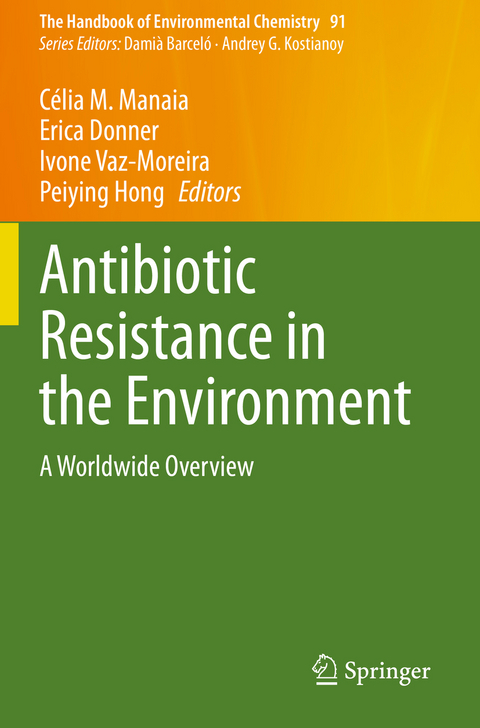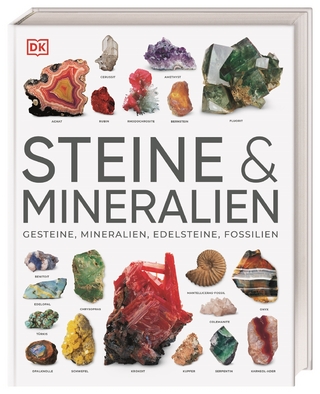
Antibiotic Resistance in the Environment
Springer International Publishing (Verlag)
978-3-030-55067-7 (ISBN)
This book provides a multidisciplinary review of antibiotic resistance and unravels the complex and interrelated roles of environmental sources, including pharmaceutical industry effluents, hospital and domestic effluents, wildlife and drinking water. Antibiotic resistance is a global public health issue in which the interface between humans, animals and the environment is particularly relevant. The contrasts seen across different environmental compartments and world regions, which are due to climate, social and policy differences, mean that this problem needs to be analyzed from a multi-geographic and multi-cultural angle. Bringing together contributions from researchers on different continents with expertise in antibiotic resistance in a range of different environmental compartments, the book offers a detailed reflection on the paths that make antibiotic resistance a global threat, and the state-of- the-art in antibiotic resistance surveillance and risk assessment in complex environmental matrices.
lt;p>
Célia M. Manaia is currently Vice-President for Research and Internationalization at the Porto Regional Center of the Catholic University of Portugal, is coordinator of the Microbiology BSc and of MSc degrees at Escola Superior de Biotecnologia and is General Secretary of the Portuguese Microbiology Society. She has a background in Biochemistry and Microbiology. As a researcher, Celia Manaia is interested in the diversity and ecology of bacteria in human impacted areas, and has applied her investigation in contributing to unveil and control the threatening human-health problems posed by antibiotic resistant bacteria, in particular those behaving as environmental contaminants.
Erica Donner is an Associate Professor and Research Leader in the Future Industries Institute at the University of South Australia, Australia. She specialises in environmental risk assessment and management, with a major emphasis on contaminant fate and effects in (waste)water, biosolids, and soil. Her current research focuses largely on understanding the links between physico-chemical selective pressures and microbial ecology and resistance.
Ivone Vaz-Moreira is a researcher at CBQF, Portuguese Catholic University, graduated in Biochemistry with a Ph.D. in Biotechnology with specialization in Microbiology. Her research is focused in Environmental Microbiology, associated with aquatic habitats and their intersections with soil/sediments, plants, animals, and finally humans; including the study of the bacterial diversity with particular emphasis on the urban water cycle and the potential of antibiotic resistance dissemination from aquatic environments. Other activities include be academic editor for PlosOne journal, teaching, collaboration as a volunteer with the Federation of European Microbiological Societies (FEMS), peer-reviewing of papers and research proposals.
Peiying Hong is an Associate Professor in Division of Biological and Environmental Science and Engineering, KAUST. She completed her Ph.D. at National University of Singapore and her postdoctoral training in University of Illinois at Urbana Champaign. Her current research aims to address water scarcity through the use of treated wastewater and seawater. Her research activities are devised to provide the fundamental science and goal-oriented research underpinning improvements in water health and management. Peiying has published over 70 papers in leading journals, and is an editorial board member of various applied microbiology journals.
Antibiotic resistance in the environment: expert perspectives.- Antibiotic resistant bacteria in wildlife.- Genomic surveillance for One Health antimicrobial resistance: understanding human, animal, and environmental reservoirs and transmission.- Antibiotic resistance in pharmaceutical industry effluents and effluent-impacted environments.- Antibiotic resistance in municipal wastewater: A special focus on hospital effluents.- Control strategies to combat dissemination of antibiotic resistance in urban water systems.- Antibiotic resistance, sanitation and public health.- Antibiotic resistance and sanitation in India: current situation and future perspectives.- Mitigating antimicrobial resistance risks when using reclaimed municipal wastewater for agriculture.- Antibiotic resistance in soil.- Religious Mass Gathering (Hajj) and Antimicrobial Resistance: From Challenges to Opportunities.- Human movement and transmission of anti-microbial resistant bacteria.
| Erscheinungsdatum | 24.08.2021 |
|---|---|
| Reihe/Serie | The Handbook of Environmental Chemistry |
| Zusatzinfo | XII, 344 p. 1 illus. |
| Verlagsort | Cham |
| Sprache | englisch |
| Maße | 155 x 235 mm |
| Gewicht | 545 g |
| Themenwelt | Sachbuch/Ratgeber ► Natur / Technik ► Natur / Ökologie |
| Medizin / Pharmazie ► Medizinische Fachgebiete ► Pharmakologie / Pharmakotherapie | |
| Naturwissenschaften ► Biologie ► Mikrobiologie / Immunologie | |
| Naturwissenschaften ► Biologie ► Ökologie / Naturschutz | |
| Naturwissenschaften ► Chemie ► Technische Chemie | |
| Schlagworte | antibacterial drug resistance • Antibiotics • Antimicrobial Resistance • Biocide resistance • drug resistance • Environmental microbiome • horizontal gene transfer • microbial ecology |
| ISBN-10 | 3-030-55067-2 / 3030550672 |
| ISBN-13 | 978-3-030-55067-7 / 9783030550677 |
| Zustand | Neuware |
| Haben Sie eine Frage zum Produkt? |
aus dem Bereich


